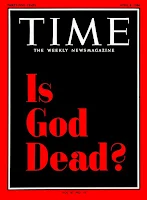L'Assommoir (The Dram Shop)
By Émile Zola
Translated by Robin Buss
I had never read any Zola, so I figured it was about time, and I've had this paperback sitting on my shelves for several years. Unfortunately, it took me several months to get through it, not because it's a difficult read but because I decided to launch my Proust Project and because I had a few review assignments that intervened. Not much time for other reading.
Actually, it was fascinating to read Zola and Proust together. Proust is so internal, Zola so exterior. In fact, I wouldn't call L'Assommoir a novel so much as a docudrama. Zola's great strength is as a reporter. True, he creates good characters, but in this novel at any rate he's not so strong on plot -- it's pretty much the rise (not very high) and fall of a woman whose chief enemies are some ne'er-do-well men and their (and her) weakness for alcohol. That's why the title is L'Assommoir, which translator Robin Buss explains was "a slang word for a working-class bar, derived from the word assommer, 'to bludgeon, to stun' (referring to the effects of cheap spirits on the consumer)." His translation of the title, "The Dram Shop," isn't much help to the contemporary reader, who has probably never heard the phrase. If I were translating it, I might call it "The Gin Joint," or maybe "The Dive." (I discovered, when I went to find a link on Amazon, that Penguin Classics has reissued what seems to be the same translation under the title The Drinking Den. L'Assommoir has also been published as Gervaise, which should have been its title to start with. She, more than the "drinking den" itself, is the focal point of the novel. It was also filmed as Gervaise in 1956 under the direction of René Clement; Maria Schell played Gervaise.)
But as I said, Zola is a great reporter. His depictions of the working-class side of mid-19th-century Paris are fascinating: He takes us inside foundries and bars and laundries and shops with a meticulous eye for detail. Here's a bit from a scene where Gervaise, the novel's central character, goes to wash her clothes:

The wash-house was a vast shed with a flat roof, supported by visible beams on cast-iron pillars and enclosed by wide clear-glass windows, which admitted the pale daylight so that it could pass through the hot steam that hung like a milky mist. ... A heavy dampness rained down, laden with the smell of soap -- a moist, insipid, persistent smell, in which, from time to time, stronger whiffs of bleach would dominate. Along the washing-boards that lined both sides of the central aisle were rows of women, their arms naked to the shoulders, their necks bare and their skirts tucked in to reveal coloured stockings and heavy, laced-up shoes. They were beating fiercely, laughing, throwing their heads back to shout something through the din or leaning forward into their tubs, foul-mouthed, brutish, ungainly, soaked through, their flesh reddened and steaming. Around and underneath them, a great stream coursed by, coming from buckets of hot water carried along and tipped out in a single movement, or else from open taps of cold water pissing down, ... all running off in rivulets across the sloping stone floor from the ponds in which their feet paddled. And, in the midst of the cries, the rhythmical beating noises and the murmurous sound of rain -- the tempestuous clamour deadened by the damp roof -- the steam-engine, over to the right, completely whitened by a fine dew, panted and snored away unceasingly, its flywheel shivering and dancing, seeming to regulate this monstrous din.









